
Rapid Increase in Fake Online Content Highlights Urgent Need for AI Detection Technology
Generative AI tools like ChatGPT are making life-like images and content that are nearly impossible to identify as fakes and are being used to violate copyright, for deception, and even for blackmail and extortion. A recent survey found that fakes comprise as many as one-third of the videos recommended by YouTube’s algorithms to new users, while AI-generated content predominates in new websites. Although tools for detecting AI-generated content are improving, they remain unreliable as deception spreads widely.
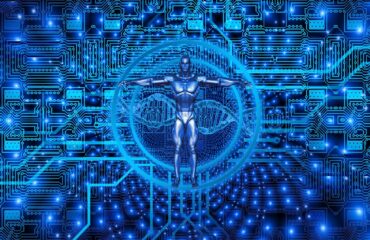
Why the Future of Technology Looks More Biological: From Medicine to Anti-Aging Research to Quantum Sensing
From medical applications, including research on reversing aging, to quantum physics, evidence is showing that some of the most effective technologies enhance, not replace, biological processes. Recent studies illustrate how nanomaterials can amplify mitochondrial transfer between cells, mRNA can restore immune signals lost with age, cellular reprogramming can be made safer by refining genetic tools, and biological molecules can host stable quantum states. Together, these discoveries show a shift to technologies that operate by enhancing cooperation, coordination, and stability within living systems.
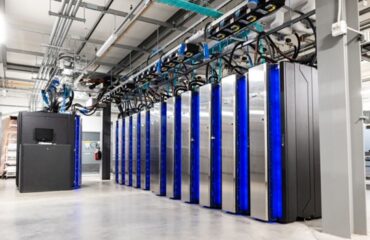
Can AI’s Increasing Power for Weather Prediction Help Avoid a Global Climate Tipping Point?
As human activity continues to inflict major climate damage with skyrocketing insurance losses, mathematics and AI give hope for identifying and avoiding a catastrophic climate tipping point of no return. Handling many variables in huge collections of data, AI is identifying weather patterns and connections, and a new system will soon deliver powerful forecasting ability to citizen scientists and researchers around the globe. As satellites and sensors deliver more accurate data, will AI and mathematics give us fighting chance of avoiding an irreversible crisis of our own making?
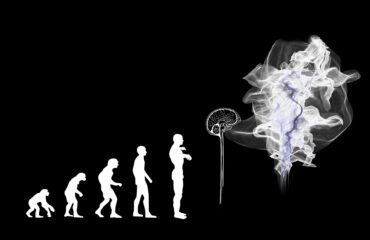
Intelligence as Motion, Not Memory: Making Sense of Complex Systems, from Brains to AI and Foam
Advances in neuroscience, artificial intelligence, and physics are converging on the question of how complex systems organize, adapt, and remain flexible over time. Brain–computer interfaces record and stimulate neural activity, and optogenetic devices show that the brain can perceive and interpret artificial signals. AI tools are uncovering new laws of dynamics, and physicists have found that even ordinary foam reorganizes itself on the same principles. These developments point to intelligence less as stored information and more as knowledge of motion and its constraints.
In Focus
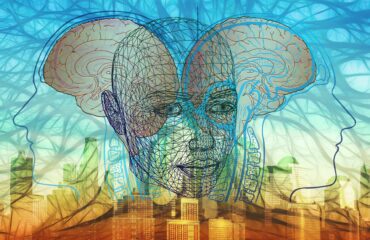
Holding Complexity: Can New Brain Models and Genetics Reshape Mental Health Research?
Mental illness is commonly approached as a collection of different diagnoses, but new research points to overlapping biological processes. A biomimetic brain model demonstrates how learning, error patterns, and cognitive flexibility can arise from neural circuits within physiological constraints. Complementary evidence from genetic analyses shows that many psychiatric disorders share overlapping genetic origins. These findings highlight how both brain function and genetic vulnerability can cut across diagnostic categories.
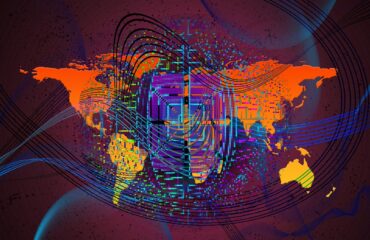
The Quantization of Warfare: The Technological Battlefield That Overpowers Both Sides in Human Combat
Scientists are on track to delivering the overwhelming speed and accuracy of quantum computing within only four years, and military powers are already focussed on developing quantum sensing for precision navigation and enemy targeting. Quantum tech will also amplify military power with new materials, miniaturized weapons, and data decryption. Is quantized war a path we dare pursue, given our history with technologically-powered combat?
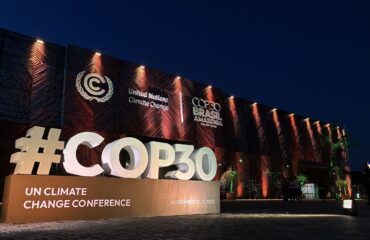
COP-30 in Belém: What Emerging Technologies Can and Can’t Deliver for Planetary Health
At the United Nations’ COP30 climate change conference in Belém, a high-level panel examined how emerging technologies can contribute to planetary health in a world already exceeding ecological limits. Drawing on a new World Economic Forum report, ten promising technologies were addressed while stressing that innovation alone won’t solve all problems. We look at the debate within COP30’s broader political outcomes, highlighting the gap between technological ambition, governance, and the structural changes required to address the climate crisis.
Editorial Perspectives
 |
Blog
|
Blog
Tech Companies Race to Manufacture Intelligence but Nobody Agrees on What Intelligence Is. Will They Create a Frankenstein?
Big Tech is competing to create AGI, a machine intelligence that’s smarter than humans, but they differ on what intelligence is. We look at five of their definitions and recall the ongoing problems with AI sycophancy and self-preservation that point to a troubled future for AGI. Without controls to ensure such a powerful machine doesn’t wind up controlling us, we offer some suggestions – including applied philosophy – for a deeper appreciation of the potential for human intelligence.
 |
Blog
|
Blog
What’s the Value of Time in the Digital Era? In the Long Run, Slowing Down and Being Bored Can Produce a Wealth of Benefits
Belief that present value is greater than the future underpins the entire economic structure, but what if we reverse the assumption with faith that human ingenuity will drive future value that eclipses the present? History shows that the risk of underestimating the future can far outweigh the uncertainties of the present. The key to generating a better tomorrow may be the opposite of using AI to speed up today's work. Instead, we could give ourselves a break to escape a repeating cycle and allow human creativity to work its magic in time.
 |
Blog
|
Blog
Depriving Children of Digital Privacy is Theft and Abuse Often Masquerading as “Free Speech,” and Online Protection for Kids Falls Far Short of Ideal
Privacy of thought is crucial for developing young minds but is under threat from AI influencing the thoughts and actions of children. Adults bear a fundamental responsibility to protect kids from online harms that include default conversation sharing for chatbot training and corporate policies allowing chatbots to engage in sexual and racist discussions with children. Impractical online age verification measures should be bolstered by severe penalties for stealing and abusing kids’ privacy, with no tolerance for irresponsible speech masquerading as “free.”
Podcasts and Webcasts
Louis Rosenberg on Our Future with Virtual Reality’s Risks and Benefits
Lindsay House: Leading 20,000 Citizen Scientists to Uncover Dark Energy’s Secrets
The Fascinating World of Mathematics at the Fields Institute, with Dr. Deirdre Haskell
The Quantum Record is a non-profit journal of philosophy, science, technology, and time.
The potential of the future is in the human mind and heart, and in the common ground that we all share on the road to tomorrow. Promoting reflection, discussion, and imagination, The Quantum Record highlights the good work of good people and aims to join many perspectives in shaping the best possible time to come.
We would love to stay in touch and add your voice to the dialogue. Add your name and email below to be notified of updates to the publication:
Latest Quantum Computing
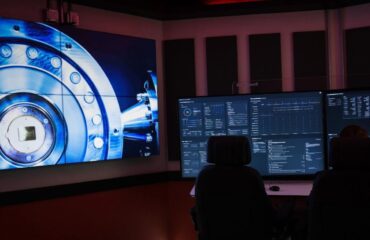
Computing Revolution is Closer with New Error Detection Protocol and the World’s “Most Accurate” Quantum Computer
Two major advances by Quantinuum have moved the goalpost closer for fully-functioning and error-free quantum computing. An unexpected result of the company’s research on the quantum contact process has led to a new method for error detection and correction, and Quantinuum’s new quantum computer, called Helios, boasts 99.9975% fidelity.

With Diamond Film and GKP Qubits, is Light About to Take Centre Stage in Quantum Computing and Drug Discovery Breakthroughs?
The discovery of a diamond film holds promise for enabling light-based memory for quantum networking and industrial-scale production of quantum processing units. Together with the recent development of photonic GKP qubits, the use of light for circuitry is advancing the prospect of full-scale quantum computing and its computational potential for discovering life-saving drugs.

Was Einstein Both Right and Wrong? New Atomic-Scale Tests Conflict on Light’s Wave-Particle Duality and Quantum Measurement
Two experimental results conflict on whether light only acts as a particle or as both a particle and a wave. Resolving the question of light’s actions of cause and effect could have significant consequences for quantum measurement and the creation of stable quantum computing circuits. One novel and intriguing interpretation is that light consists of both active photons and inert photons that are “dark.” The mathematics of dark photons support Einstein’s view that light is measurable only as a particle.
Featured Science News
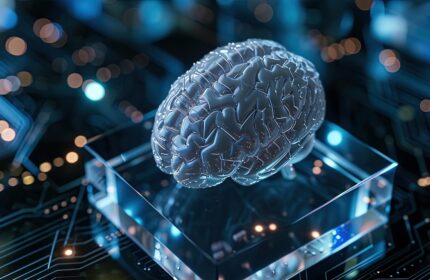
Why Artificial Neural Networks Fail in Processing Emotions Essential for Human Memory—and How Failure Can Lead to Blackmail
Artificial neural networks behind ChatGPT, Claude, and other popular large language models fall short in processing emotions, which are essential to human memory and motivation. The fault lines that lead machines to sycophancy, blackmail, jailbreaking, and other serious output errors are rooted in machine learning and choices made by human trainers. We look at examples of algorithmic failures and the reasons why.
Latest Philosophy of Technology

Rapid Increase in Fake Online Content Highlights Urgent Need for AI Detection Technology
Generative AI tools like ChatGPT are making life-like images and content that are nearly impossible to identify as fakes and are being used to violate copyright, for deception, and even for blackmail and extortion. A recent survey found that fakes comprise as many as one-third of the videos recommended by YouTube’s algorithms to new users, while AI-generated content predominates in new websites. Although tools for detecting AI-generated content are improving, they remain unreliable as deception spreads widely.

The Quantization of Warfare: The Technological Battlefield That Overpowers Both Sides in Human Combat
Scientists are on track to delivering the overwhelming speed and accuracy of quantum computing within only four years, and military powers are already focussed on developing quantum sensing for precision navigation and enemy targeting. Quantum tech will also amplify military power with new materials, miniaturized weapons, and data decryption. Is quantized war a path we dare pursue, given our history with technologically-powered combat?

Can Science Break Free from Paywalls? Technologies for Open Science Are Transforming Academic Publishing
Open science promises to make research transparent, accessible, and reusable through shared digital infrastructures. Yet this vision clashes with a publishing system that locks much publicly funded knowledge behind paywalls and reinforces global inequalities. We explore the growing ecosystem of open repositories and Publish–Review–Curate models, alongside rebel tools like Sci-Hub, and examine how digital platforms are reshaping control over science. At stake is not only access to knowledge, but who governs the platforms, incentives, and rules for how science is produced, evaluated, and shared.
Latest Technology Over Time
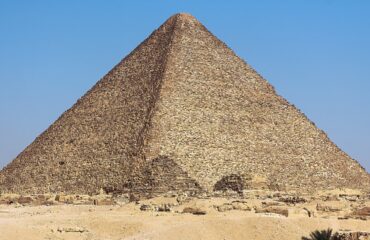
After Centuries of Exploring the Mysteries of the Great Pyramid Shafts, Will Robotics Help to Uncover Their Purpose?
Over 200 years have passed since French Emperor Napoleon’s night in the Great Pyramid puzzling over its purpose, and there remains no consensus but many theories on the question. The reason for the shafts in the King’s and Queen’s Chambers is particularly mystifying, and we explore many possibilities. Will robots, which have penetrated the shafts most deeply, help to unlock the secret that’s thousands of years old?

Decoding Ancient Technology Using Modern Technology
From the discovery of a 500-year-old ocean-going canoe in the Chatham Islands to the AI-powered decoding of ancient Roman scrolls buried in volcanic ash, modern technologies—like radiocarbon dating, CT scanning, and AI—are transforming the study of ancient artefacts. Mysteries endure, however, like the undeciphered Voynich Manuscript, and continue to challenge our understanding of the past.
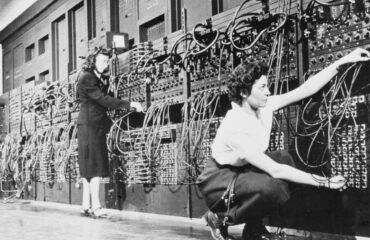
The Fascinating History of the Computer, from ENIAC, Vacuum Tubes and Transistors, to Microchips
We trace computing history from ENIAC, the first computer in 1947, from vacuum tubes to transistors, to the development of microchips that put far greater computing power in our our phones than the giant ENIAC had. With the world at the brink of a quantum computing revolution, what lessons can we draw from our computing history to shape the best possible future with our next technological leap ?
Latest Science News

Why the Future of Technology Looks More Biological: From Medicine to Anti-Aging Research to Quantum Sensing
From medical applications, including research on reversing aging, to quantum physics, evidence is showing that some of the most effective technologies enhance, not replace, biological processes. Recent studies illustrate how nanomaterials can amplify mitochondrial transfer between cells, mRNA can restore immune signals lost with age, cellular reprogramming can be made safer by refining genetic tools, and biological molecules can host stable quantum states. Together, these discoveries show a shift to technologies that operate by enhancing cooperation, coordination, and stability within living systems.

Can AI’s Increasing Power for Weather Prediction Help Avoid a Global Climate Tipping Point?
As human activity continues to inflict major climate damage with skyrocketing insurance losses, mathematics and AI give hope for identifying and avoiding a catastrophic climate tipping point of no return. Handling many variables in huge collections of data, AI is identifying weather patterns and connections, and a new system will soon deliver powerful forecasting ability to citizen scientists and researchers around the globe. As satellites and sensors deliver more accurate data, will AI and mathematics give us fighting chance of avoiding an irreversible crisis of our own making?

Intelligence as Motion, Not Memory: Making Sense of Complex Systems, from Brains to AI and Foam
Advances in neuroscience, artificial intelligence, and physics are converging on the question of how complex systems organize, adapt, and remain flexible over time. Brain–computer interfaces record and stimulate neural activity, and optogenetic devices show that the brain can perceive and interpret artificial signals. AI tools are uncovering new laws of dynamics, and physicists have found that even ordinary foam reorganizes itself on the same principles. These developments point to intelligence less as stored information and more as knowledge of motion and its constraints.
